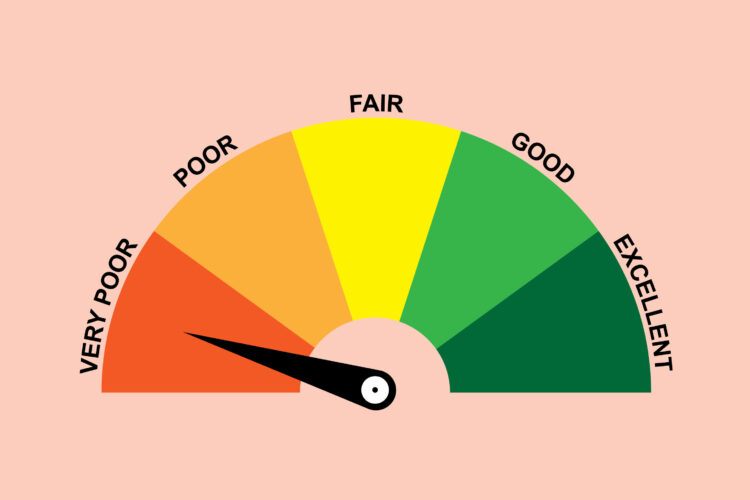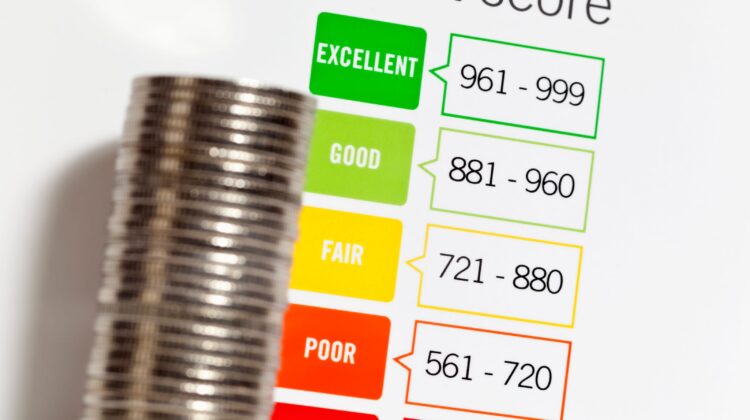You can’t really go far in life, at least financially, if your credit score is low. You can’t get good interest rates, you probably can’t get a decent deal on a mortgage, and whenever there is an opportunity that you want to get in on, but you need a loan – you probably won’t be able to get in on it.
A credit score plays an integral role in your financial freedom, and even though sometimes it might seem like it is impossible to get and maintain a high score – that’s not really the case. To prove that to you, we’ve made a mini guide to show you all the possible ways to raise your credit score and keep it that way so that you no longer have to worry about your finances.
Let’s get started.

img source: pexels.com
Page Contents
Keep The CUR Low
There is more than one factor that determines how high your score is, and one of the main ones is the credit utilization ratio. In fact, this factor alone will make up around 30% of your total score. If you don’t know what this is, it is simply a portion of the credit you’re using as opposed to the total amount you could use.
For example, if your total limit is $100,000 and you’re using only $10,000, then your CUR is 10%. A 10% CUR is excellent, but you could go as high as 30% without having to suffer any consequences to your overall score. So, keep your utilization under 30%, and you should be good. But, if you want the best results, keep it under 10%.
Ask For Higher Limit
Your credit can go up and down, but if your balance stays the same while your credit goes up, your overall utilization goes down, which in return, as we’ve just mentioned, could increase your score.
Now, you can’t just out of the blue ask for a higher limit. You will need something to back up your claim for a higher limit. In general, you could do this if your income has gone up or if you’ve created a history of excellent credit experience.
Essentially, this comes down to the same thing we’ve just mentioned, and that’s lowering your CUR.

Img source: fortune.com
Pay Your Debts On Time
The best and probably the most efficient way to build up your score is by paying your debt on time. Sure, this can’t happen overnight, but then again, your score didn’t drop overnight, either. It might take some time, but you should start noticing an improvement in a matter of months.
Generally speaking, if you could live your life off of credit and still manage to pay your monthly fees on time – your score would be impeccable. So, if you have the ability to do this – do it. This is one of the best ways to achieve financial freedom and independence, as well as increase your credit score, according to www.comparecredit.com, as well as many financial advisors.
Naturally, this doesn’t mean applying for new lines of credit at every turn (which we’ll discuss in just a moment), but in general, paying out your loans in full and on time each month will result in a great credit score.
Don’t Apply For New Lines Of Credit
Every time you apply for a new line of credit – your score drops. Not by a lot, but it does. That is because you’re building up your CUR while also lowering the age of your accounts that already showcase your positive credit history.
Maintaining existing, positive lines of credit will build up your score, but opening up new ones, even if you can pay them on time, will momentarily lower your score. You will be able to back it up in some time, but since it will lower your score first, it is not a good strategy for increasing your score.

img source: pexels.com
Fix Credit Report Errors
It is not uncommon for banks to make an error that reflects negatively on your credit score. Whether they do this accidentally or intentionally to lower your credit score and possibly make money off of you in the future – that’s open for discussion. Either way, these errors happen, and they need to be fixed.
Whenever you spot an error, no matter how small or seemingly insignificant – fix it. You’ll need to file a dispute with the credit bureau to fix the mistake, but that’s not something that will take up too much of your time but will most definitely make a noticeable difference.
To check for potential errors, you can use some of the apps that are available on your phone or through a web browser.
Become An Authorized User On Someone Else’s Credit Card
Becoming an authorized user of a credit card owned by someone with a high score can have a positive impact on yours. This is an excellent way for young people who haven’t had the time to establish positive credit history to bump up their score rather quickly.
Just ask your parents, if they have a good, high score, to make you an authorized user, and you should quickly notice the change in yours.

Img source: presto.com
Get A Credit Builder Loan
This is a neat little trick to use your own money to increase your credit score. It won’t be a significant boost, but it will certainly help. Essentially, this means that you’d loan money to yourself, only to get it back in a year or two. You would make monthly, on-time payments into an interest-bearing certificate of deposit, and during that time, the banks would report your payments to the bureau. After the loan term ends, you get your money back, alongside a positive credit history.
Conclusion
As you can see, there are more than a few things you could do to improve your credit score. None of these are a quick fix, mainly because there’s no such thing as a quick fix. The credit score is built over time, and these were the best ways to build yours.
Hopefully, you’ve found this helpful. Take care.





